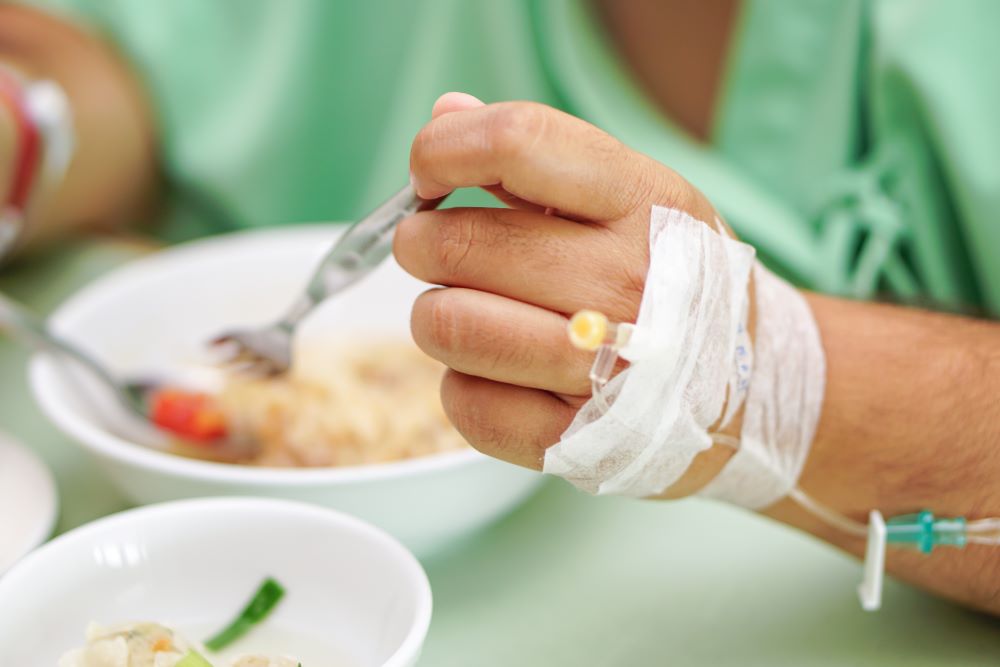Chemotherapy Education (Managing Taste Changes)
November 25, 2023

Taste Changes
Some people notice things taste differently during or after cancer treatment. Examples of these changes include:
o Food tastes differently than before, mainly bitter, sweet, and/or salty foods.
o Food smells different or certain smells are stronger.
o Food may taste bland.
o Every food may have the same taste.
o A metallic or chemical taste in your mouth, especially after eating meat or other high-protein foods.
What causes taste changes during cancer treatment?
Taste changes can be caused by many things related to cancer treatment:
o Medications to treat cancer
• About half of people receiving cancer treatment have taste changes.
• This usually stops 3 to 4 weeks after treatment ends.
o Radiation treatment to the head or neck may affect taste buds and sense of smell.
• This usually starts to improve 3 weeks to 2 months after treatment ends.
• Taste changes may continue to improve for up to 1 year.
o Other causes:
• Surgery to the nose, throat, or mouth
• Dry mouth
• Mouth sores
• Nausea and vomiting
• Dehydration
• Heartburn
• Medications to help with side effects of cancer treatment
How can taste changes be prevented or treated?
There are no specific ways to prevent or treat taste changes from cancer treatment. To help, you can try the following:
If you have a metallic taste in your mouth
Use plastic forks, knives, and spoons.
• Eat mints, chew gum, or chew ice.
• Avoid red meat or try to marinate meat in fruit juices, Italian dressing, teriyaki sauce, sweet and sour sauce, or barbeque sauce.
• Other sources of protein you can try are chicken, eggs, fish, peanut butter, beans, and dairy.
If foods taste bland:
Brush your teeth before and after each meal.
• Eat cold or room-temperature food, it may taste better than hot food.
• Flavor food with herbs, spices, salad dressings, or sauces that you like.
• Eat fresh or frozen fruits and vegetables instead of canned.
• Eat small meals more often.
If foods taste salty
Try low-salt versions of food or add a small amount of sugar to your food.
• Drink plenty of clear liquids such as water, flavored water, sports drinks, broth, and decaffeinated tea.
Avoid strong smells.
Use a fan, cook on an outdoor grill, or buy precooked food.
• Cover drinks and use a straw.
• Choose foods that do not need to be cooked

